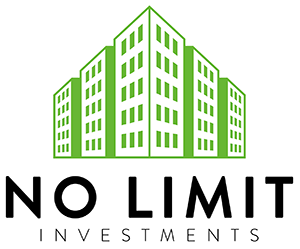Why Should You Consider Rental Property Investment?
Rental property investment offers one of the most proven paths to building long-term wealth. By owning properties that generate consistent income, investors create passive cash flow while benefiting from property appreciation over time. According to the U.S. Census Bureau, over one-third of American households are renters, which means there is consistent demand for rental housing (U.S. Census Bureau).
Beyond income potential, rental properties serve as a hedge against inflation. As prices rise, rental rates often increase, which helps maintain profit margins. Furthermore, the ability to leverage financing allows investors to grow their portfolios faster than traditional savings or stock investments. Real estate, unlike many other assets, gives owners direct control over performance and value through improvements and effective management.
How Do You Choose the Right Property for Long-Term Profit?
Selecting the right property is one of the most important decisions in rental property investment. Investors should evaluate potential properties based on three major criteria: location, condition, and profitability potential.
- Location: Choose neighborhoods with strong employment rates, access to schools, and nearby amenities. Local government data on housing demand and zoning can provide insights into future growth areas.
- Condition: Consider both the property’s physical state and the cost of necessary renovations. Some investors use Fix & Flip Loans from firms such as No Limit Investments to upgrade properties before converting them into rentals.
- Profitability: Conduct a rental market analysis by comparing similar properties in the area. This helps estimate monthly rent and ensure positive cash flow after expenses.
Researching future development plans and understanding local rental regulations can help investors make informed decisions that support long-term returns.
What Financing Options Are Available for Rental Property Investors?
Securing the right financing is essential to scaling a real estate portfolio. Investors have several lending options depending on their goals and credit profile. No Limit Investments offers a diverse suite of real estate financing solutions tailored to different investment strategies, such as:
- Fix & Flip Loans: Ideal for short-term investors who buy distressed properties, renovate them, and resell or refinance.
- Buy & Hold Mortgages: Designed for investors planning to keep rental properties long-term for cash flow.
- BRRRR Financing (Buy, Rehab, Rent, Refinance, Repeat): Enables investors to recycle capital and grow their portfolios faster.
- Cash-Out Refinance: Allows property owners to access built-up equity to fund additional property acquisitions.
- DSCR Loans (Debt Service Coverage Ratio): Evaluates income potential rather than personal income, allowing more flexibility for investors with multiple properties.
- New Construction Loans: Supports investors building new rental units or multi-family properties to meet growing housing demand.
Each financing route depends on the investor’s short- and long-term objectives, credit health, and experience level. Consulting professional advisors and lenders specializing in investment properties ensures the best match between strategy and loan structure.
How Can You Analyze Cash Flow and Return on Investment?
Understanding cash flow and ROI helps determine whether a rental property is profitable. A property’s cash flow is the remaining income after accounting for mortgage payments, property taxes, insurance, maintenance, and vacancy costs. To calculate it:
Cash Flow = Total Rental Income – Total Operating Expenses
Meanwhile, Return on Investment (ROI) measures profitability relative to total costs.
ROI = (Annual Net Income ÷ Total Investment Cost) × 100
Key factors influencing ROI include:
- Purchase price
- Financing terms
- Rent-to-price ratio
- Maintenance and management costs
Accurate analysis allows investors to forecast long-term performance. Tools such as rental property cash flow analysis worksheets can help visualize these numbers and plan strategically.
What Legal and Tax Factors Should You Understand?
Successful rental property investors comply with federal, state, and local laws governing leases, fair housing, safety codes, and tenant rights. The U.S. Department of Housing and Urban Development (HUD) provides clear guidelines on anti-discrimination and tenant-landlord relations (HUD.gov).
Tax benefits are another major incentive. Investors can often deduct mortgage interest, property taxes, insurance, maintenance costs, and depreciation. Consulting a licensed tax professional helps ensure compliance while maximizing deductions.
Additionally, forming an LLC or other entity can protect personal assets and create clearer accounting for multiple properties. Always confirm entity structure and tax obligations with legal professionals familiar with real estate investments.
How Do You Manage and Maintain a Rental Property Effectively?
Property management plays a key role in maintaining steady income and tenant satisfaction. Investors can either manage their properties directly or hire a property management firm. Effective management practices include:
- Screening tenants carefully using credit and background checks.
- Maintaining open communication with tenants to build trust.
- Scheduling regular maintenance to prevent costly repairs.
- Setting competitive rent rates based on local market trends.
Modern technology makes property management easier, with online payment systems, maintenance tracking, and digital lease tools helping streamline operations. Consistency in property upkeep not only prevents turnover but also sustains long-term profitability.
What Are Common Mistakes to Avoid in Rental Property Investment?
Even experienced investors can make mistakes that impact returns. Common pitfalls include:
- Underestimating repair costs
- Overleveraging without enough reserves
- Failing to research market trends
- Ignoring vacancy rates
- Mismanaging tenant relations
Investors should also avoid emotional decision-making. Real estate investing is a numbers game, and successful investors rely on accurate data and realistic projections.
Working with partners like No Limit Investments, who provide Credit & Debt Advisory and Business Credit Facilities, can help investors make financially sound decisions that align with sustainable growth goals.
How Can You Expand Your Real Estate Portfolio Strategically?
Once investors gain experience with one or two rental properties, the next step is scaling strategically. Portfolio expansion requires careful planning, financing, and management. Strategies include:
- Using BRRRR Financing to leverage equity and reinvest profits.
- Applying for Cash-Out Refinances to access funds from existing assets.
- Utilizing DSCR Loans to qualify for additional properties based on income performance rather than personal credit.
- Exploring Growth & Development Services to identify emerging markets or opportunities for multi-unit housing.
Diversifying property types, such as single-family, multi-family, and short-term rentals, also reduces risk and stabilizes income. Over time, this approach allows investors to create a balanced and scalable portfolio.
How Can You Start Building Wealth Through Real Estate Today?

If you’re ready to begin or scale your rental property journey, partnering with a trusted real estate financing expert can make all the difference.
No Limit Investments provides comprehensive real estate financing solutions designed for both new and experienced investors. From Fix & Flip Loans to Buy & Hold Mortgages, BRRRR Financing, and Cash-Out Refinance programs, their team helps structure deals that align with your investment goals.
Additionally, through Business Credit Facilities, Credit & Debt Advisory, and Growth & Development Services, investors gain access to the resources and education necessary to build sustainable portfolios.
Visit No Limit Investments today to explore financing options that can help you start generating passive income and long-term wealth through rental property investment.
Final Thoughts
Rental property investment remains one of the most effective ways to achieve financial independence. By following a clear process, identifying the right property, leveraging suitable financing, maintaining profitability, and scaling strategically, investors can transform real estate into a reliable income source.
Choosing partners like No Limit Investments ensures that investors have access to the right financial tools, advisory support, and market insights to grow confidently. With consistent effort, sound analysis, and professional guidance, building a profitable rental property portfolio becomes not only possible but highly rewarding.
Works Cited
U.S. Census Bureau. Quarterly Residential Vacancies and Homeownership, Second Quarter 2025. U.S. Department of Commerce, 2025, www.census.gov/housing/hvs/.
U.S. Department of Housing and Urban Development. Fair Housing Laws and Presidential Executive Orders. HUD.gov, 2025, www.hud.gov/program_offices/fair_housing_equal_opp.
Internal Revenue Service. Publication 527: Residential Rental Property. IRS.gov, 2025, www.irs.gov/publications/p527.
Federal Housing Finance Agency. Mortgage Market Activity and Trends. FHFA.gov, 2025, www.fhfa.gov/DataTools.
Frequently Asked Questions (FAQs)
- What is the best financing option for a first-time rental property investor?
For beginners, a Buy & Hold Mortgage is often the best choice because it allows investors to finance long-term rentals at competitive rates. It’s ideal for generating steady monthly income while building equity over time. As your portfolio grows, you can explore other financing options like BRRRR Financing or Cash-Out Refinance through No Limit Investments to expand further.
- How can I calculate if a rental property will be profitable?
Profitability depends on your cash flow and Return on Investment (ROI). Calculate cash flow by subtracting all expenses (mortgage, taxes, insurance, and maintenance) from rental income. Then, determine ROI using:
ROI = (Annual Net Income ÷ Total Investment Cost) × 100
A positive cash flow and ROI above 8% are generally considered good benchmarks for rental property investment.
- What type of loan should I use for renovating a rental property before renting it out?
If the property needs significant improvements before generating rental income, a Fix & Flip Loan or New Construction Loan from No Limit Investments is suitable. These loans are designed to finance renovations, after which you can refinance into a Buy & Hold Mortgage or DSCR Loan for long-term stability.
- Can I invest in rental properties if my credit score isn’t perfect?
Yes, you can. Real estate lenders like No Limit Investments offer DSCR Loans and Business Credit Facilities that focus more on the property’s income potential rather than your personal credit score. Working with their Credit & Debt Advisory team can also help you improve your financial profile and qualify for better terms over time.
- How do I know when it’s time to expand my rental property portfolio?
You’re ready to expand when your current properties generate consistent positive cash flow, and you have built sufficient equity or reserves. Using strategies such as Cash-Out Refinance or BRRRR Financing helps unlock capital for new purchases. No Limit Investments also offers Growth & Development Services to help investors identify the right opportunities and scale strategically.







